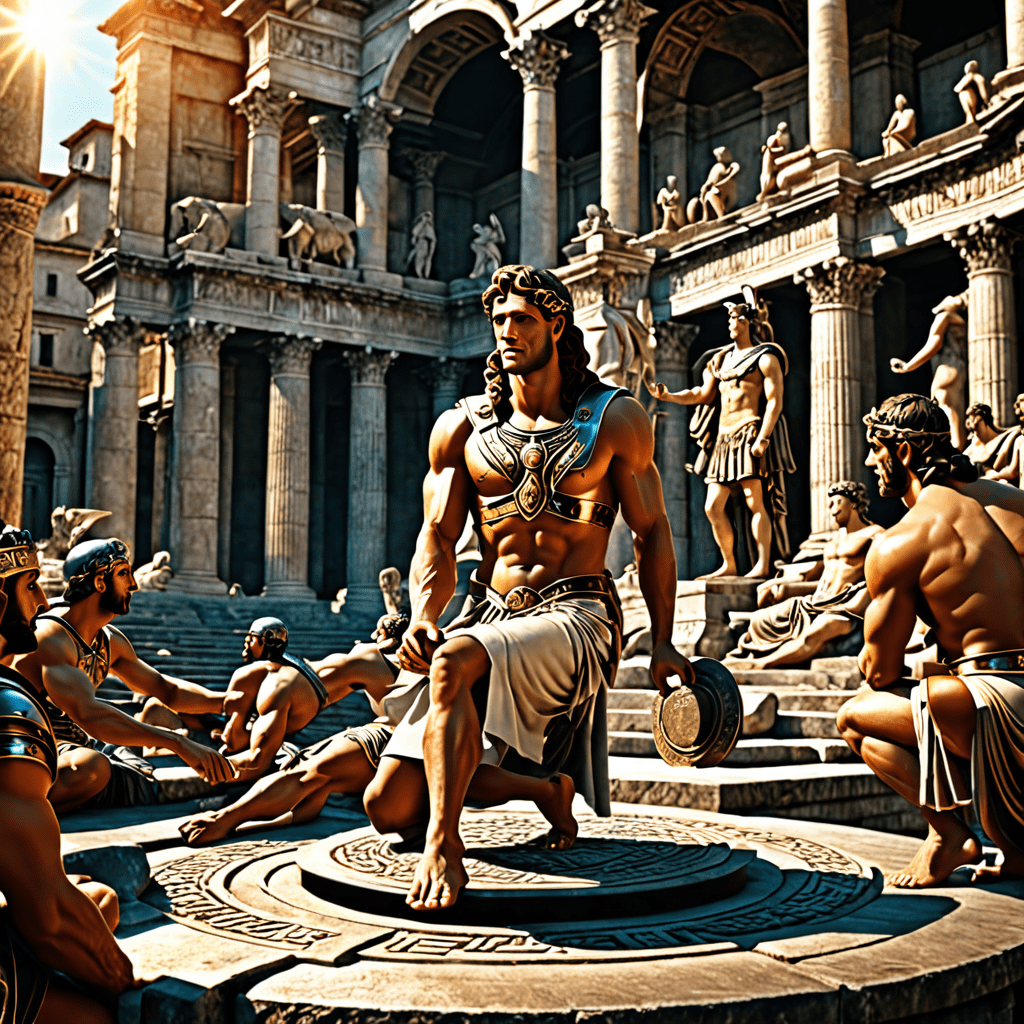Roman Mythology: Exploring the Concept of Memory and Forgetfulness
The Role of Memory and Forgetfulness in Roman Mythology
In Roman mythology, the concepts of memory and forgetfulness play crucial roles in shaping the narrative of various gods and goddesses. Mnemosyne, the personification of memory, is a Titaness and the mother of the nine Muses who embody various arts and sciences. Mnemosyne’s existence highlights the importance of memory in inspiring creativity, knowledge, and cultural heritage. On the contrary, Forgetfulness, represented by the River Lethe, symbolizes oblivion and is known for its ability to erase memories.
The Mythological Figures Associated with Memory and Forgetfulness
One prominent figure tied to memory in Roman mythology is Metis, the Titaness of wisdom and deep thought. Metis was known for her unparalleled intelligence, symbolizing the profound connection between memory and intellect. On the other hand, Concordia, the goddess of harmony and unity, embodies the importance of remembering past agreements and maintaining balanced relationships among deities and mortals.
In contrast, Forgetfulness is personified by the River Lethe. According to myth, the souls of the deceased would drink from the waters of Lethe in the Underworld to forget their past lives before being reincarnated. This act of forgetfulness was believed to be essential for the soul’s reincarnation and a new beginning.
Implications of Memory and Forgetfulness in Roman Culture
Memory and forgetfulness in Roman mythology reflect the values and beliefs prevalent in ancient Roman culture. The Romans honored memory through rituals, oaths, and ancestor veneration, emphasizing the importance of preserving historical accounts and upholding promises. Forgetfulness, conversely, signified the power to move forward without being burdened by past grievances or sorrows.
The emphasis on memory and forgetfulness also manifested in Roman literature and art, where stories and depictions of Mnemosyne, the Muses, Lethe, and other relevant figures served as moral lessons and reflections of human nature. These mythological elements showcased the Romans’ understanding of the complexities of memory, the passage of time, and the cyclical nature of life experiences.
Exploring Memory and Forgetfulness Today
While Roman mythology sheds light on the ancient perspectives of memory and forgetfulness, these concepts remain relevant in contemporary society. Understanding the significance of memory can encourage individuals to cherish their past experiences, learn from history, and appreciate the collective knowledge passed down through generations. Similarly, acknowledging the role of forgetfulness allows for personal growth, healing, and the opportunity to embrace new beginnings without being shackled by the past.
In conclusion, delving into Roman mythology’s portrayal of memory and forgetfulness offers valuable insights into the complexities of human cognition, emotion, and societal dynamics. By exploring these mythological concepts, we can gain a deeper understanding of ourselves and our connection to the broader tapestry of history and culture.
FAQ: Roman Mythology: Exploring the Concept of Memory and Forgetfulness
What is the significance of memory and forgetfulness in Roman mythology?
Memory and forgetfulness play crucial roles in Roman mythology, represented by deities like Mnemosyne and Lethe. Memory is revered for its ability to retain important knowledge and experiences, while forgetfulness symbolizes the power to release painful memories and start anew.
Who are the key figures associated with memory and forgetfulness in Roman mythology?
In Roman mythology, Mnemosyne, the goddess of memory, is celebrated for her role in preserving knowledge and history. On the other hand, Lethe, the river of forgetfulness, is believed to erase memories, providing a clean slate for individuals in the afterlife.
How do memory and forgetfulness manifest in Roman mythological stories?
Roman myths often depict characters encountering challenges related to memory and forgetfulness. Heroes may struggle to remember crucial details to overcome obstacles, while others seek Lethe’s waters to forget painful past experiences and find peace.
What lessons can we learn from the concept of memory and forgetfulness in Roman mythology?
The tales of memory and forgetfulness in Roman mythology offer valuable insights into the importance of balancing remembrance and release. They teach us to cherish knowledge and learn from the past, while also acknowledging the healing power of letting go and embracing new beginnings.




